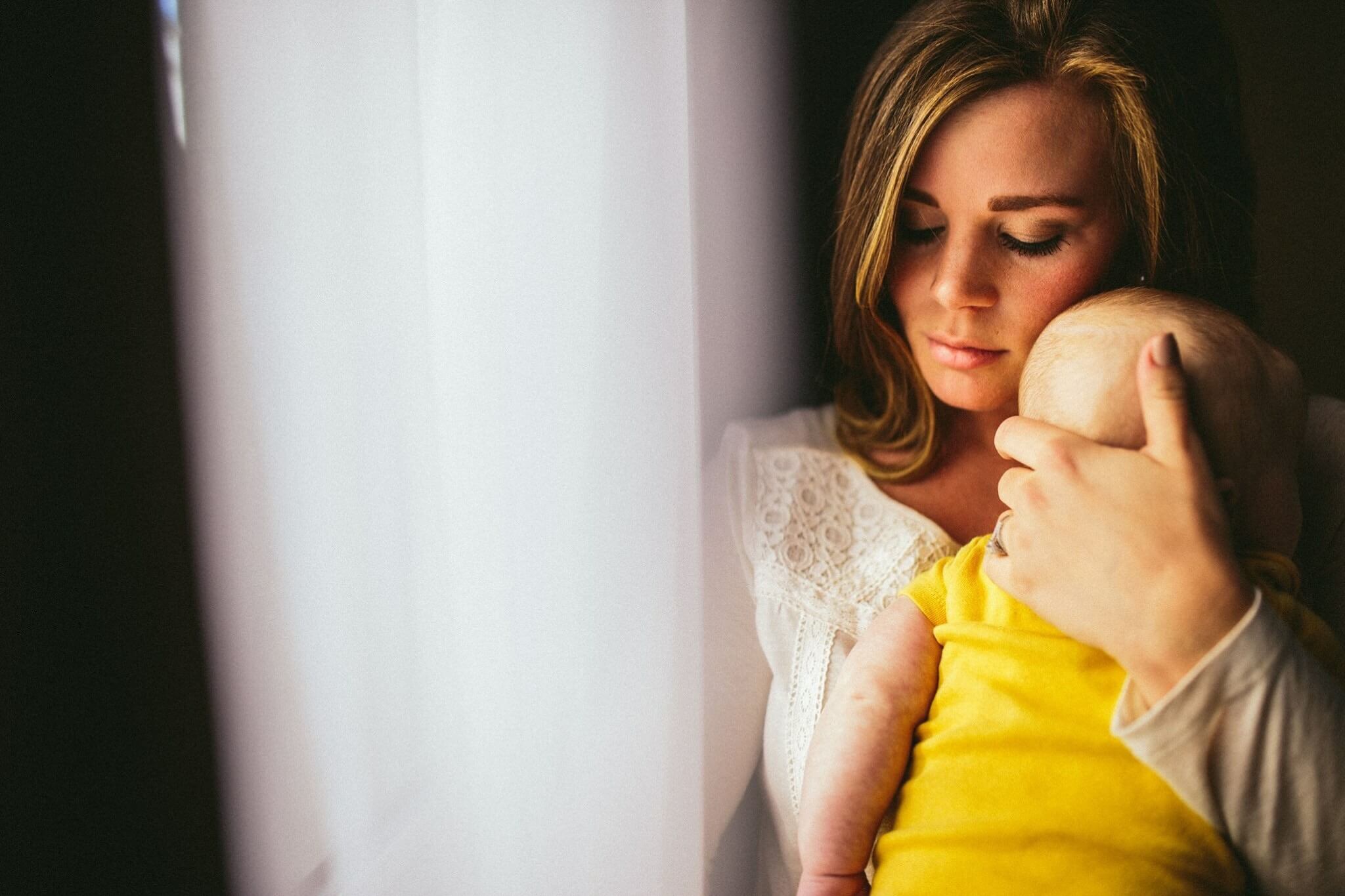
“Your love button is broke and you and your baby are doomed. You take the baby home, because you have to, and suffer in silence.” – Courtney Scully of Southeast Doulas
In our society images of motherhood are glamorized. That first moment Mom and her baby lock eyes is portrayed as love at first sight. Baby is calm and comfortable, mom is glowing with joy and there is this sense of an innate connection between the family.
This is a moment you have been dreaming of. You have done everything to prepare yourself. Everyone has told you this moment would be worth it. The moment arrives. On your birthing day, you welcome your baby into the world, and in a split second you and your partner are simultaneously transformed into parents. This may be the most life changing experience of your entire life. There is no other day in our lives when we are asked to do, be and experience so many things.
Finally, your baby is brought to your chest and you expect love at first sight. You expect your instincts to take over but you realize you are paralyzed with fear that you don’t know hold or care for this new life. The feelings of admiration are replaced by uncertainty, as you don’t know how to connect with this seemingly fragile little human that has just been handed to you. The moment the life you are now responsible for cries, you become overwhelmed and don’t immediately know what to do. Perhaps you question your decision to become a parent. As if this self-doubt isn’t bad enough you are also flooded by guilt because you are thinking this way. Again Courtney Scully of Southeast Doulas puts it so elegantly. You think that…
“Surely something is wrong with you. Your love button is broke and you and your baby are doomed. You take the baby home, because you have to, and suffer in silence. You’re scared to tell anyone of your feelings due to fear of judgment and condemnation.” – Courtney Scully
Let me reassure you. You are not alone. Do not suffer in silence. As many as 3 out of 4 women will experience postpartum blues such as mood swings, unexplained crying, irritability and restlessness during the first weeks after birth. These emotions will be amplified if you are tired or anxious. If you find yourself easily upset, unable to sleep or have any concerns contact support sooner rather then later.
Postpartum depression affects 1 out of every 5 women. Symptoms may be mild, moderate or severe. Your doula should go over what to watch out for and give you information before your birth of who to contact. Printing out the Edinburgh Postnatal Depression Scale prior to having you baby and having a discussion with your partner surrounding the signs of postpartum depression is a really good idea so any concerns can be addressed early.
Symptoms are variable but may include;
- Feeling guilty
- Not able to enjoy your baby and feeling like you are not bonding with your baby
- Not able to sleep, even when the baby is sleeping
- Sleeping too much and feeling too tired to get out of bed
- Feeling overwhelmed and not able to do what you need to during the day
- Not able to concentrate
- Don’t feel like eating
- Feeling like you are not normal or not yourself anymore
- Not able to make decisions
- Feeling like a failure as a mother
- Feeling lonely or all alone
- Thinking your baby might be better off without you
Postpartum psychosis is an uncommon but severe mental illness that can affect anyone during the postpartum period. Women may experience visualizations and hear things that are really not there. These women may feel their baby is being harmed even when the baby is not in danger or may see themselves harming their baby. If you have these thoughts or thoughts of harming yourself or baby call 911 and have a trusted person remain with you.
Just because you do not immediately bond with your baby does not mean you have postpartum blues or depression, but it is worth keeping in mind. You do not need to feel obligated or pressured to fall madly in love right away. It is normal to develop a deeper connection with your baby as time goes on. Be kind to yourself, sleep, consume nutritious foods, seek support and allow yourself to recover from the physical and emotional marathon that birth and motherhood is. A doula can help you process these feelings and emotions and will offer non-judgmental support and encouragement as you ride the waves of motherhood. No one is perfect. You are enough and you are precisely what your baby wants and needs exactly as you are.
References:
Courtney Scully of Southeast Doulas.
“Postpartum Depression”. Journal of Midwifery and Women’s Health 58.6 (2013): 719-720. Print.
 By Breanne Kallonen
By Breanne Kallonen July 15, 2016
July 15, 2016